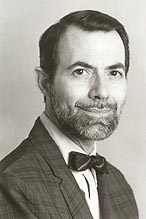Marshall Becker
Back to PAF Home
Back to PAF: Who We Are, What We Do
The Philadelphia Archaeological Forum is sad to learn of the recent death of Marshall Becker. He was a legendary character, a prolific writer of archaeological research done near and far, and he loved dancing. (December 2024).
 Marshall Joseph Becker was Professor Emeritus (Anthropology) at West Chester University. This ever busy researcher spent his later years presenting and publishing on his past 40 years of archaeological research data gathering, a substantive portion of which involved study in the Delaware Valley area.
Marshall Joseph Becker was Professor Emeritus (Anthropology) at West Chester University. This ever busy researcher spent his later years presenting and publishing on his past 40 years of archaeological research data gathering, a substantive portion of which involved study in the Delaware Valley area.
Dr. Becker’s introduction to archaeology began in high school, when Marshall was planning a career in the military. One of his teachers recognized that his bent was in anthropology. Postponing his military career, he elected to attend the University of Pennsylvania where he did most of his undergraduate credits in cultural anthropology. When he morphed into a graduate student at Penn, he focused his efforts on physical anthropology. He also joined the ROTC, serving on the drill team and earning a Distinguished Military Cadet ribbon.
In 1960, while chatting about travel to a conference in Germany with Ted Kidder, with whom he had taken a graduate course some years earlier, Kidder suggested that he go to Guatemala. With telling ignorance he replied “Germany; Guatemala! It’s all G’s to me!” And thus began research on settlement patterns at Tikal, Guatemala, and began developing insight into the lives of the forest-urban ancient Maya. Ultimately Marshall wrote his dissertation on this field program (Becker 1971, 1976).
Mashall first taught archaeology at The University of Toledo in Ohio where he became, by default, involved with the archaeology of native peoples during the early contact period. His first insights into the nature of culture contact and cultural continuity and culture change were fostered during this period. He took up his position at West Chester University when finishing his doctoral degree which he says allowed him “to enjoy life in a little country town”. As the only anthropologist at West Chester for two years, and one of two for many years thereafter, Marshall taught all of the biological anthropology and archaeology courses as well as introduction to cultural anthropology and other oddments that were assigned. To maintain a program in field archaeology he began a comprehensive study of the Taylor Farm Site, including excavation of the farm cemetery dating from ca. 1751 to the 1860s and a study of the documentary records and genealogy of the family that lived on that property and then later, in the West Chester area, from ca. 1720 to the present. Students that he trained in that program went on to work at the Montgomery Site (36CH60), a Lenape burial area in use from ca. 1720 to 1733. This research, in conjunction with a field trip to Oklahoma, marked the beginning of Marshall’s studies of the native peoples of the Delaware River and Delaware Bay regions that continued for nearly 40 years. Marshall’s ‘four fields of anthropology’ training from Penn enabled him to apply multiple anthropological approaches in gathering information about the Lenape (“Delaware Indians”) and their neighbors. He published nearly 200 articles on the Lenape and other Native Americans in scholarly as well as popular journals.
Marshall’s Maya” roots have not been forgotten. He published a number of book chapters and a monograph on the peoples of the lowland Maya region, and long continued to contribute to the literature in that field. Moreover, for rest and relaxation over the years, he went back to his earlier roots in physical anthropology by serving as “bone man” on projects in the Mediterranean region. His studies of skeletal populations from archaeological sites largely focused in Italy, but he enjoyed several opportunities in the Czech Republic and elsewhere in the European Union and Turkey. These results appeared in dozens of articles.
Much of Marshall’s efforts in the years prior to his death concerned the archaeology of the Montgomery Site, the only Lenape site identified within their homeland in southeastern Pennsylvania. As an outreach lecturer for The University Museum (University of Pennsylvania), where he was a Senior Fellow in the Department of Anthropology and a Consulting Scholar in the Mediterranean Section, he was able to share his extensive information with the public at large. He also lectured for the Pennsylvania Humanities Council, The Delaware Humanities Forum, and the New Jersey Endowment for the Humanities – agencies designed to bring this type of research forward to the general population. Marshall’s research over the years was supported by grants from the National Science Foundation, the National Endowment for the Humanities, The American Philosophical Society, the National Geographic Society and the Social Science Research Council.
This essay was produced by Patrice L. Jeppson, drawing upon a bio provided to PAF by Dr. Becker in 2009. It was updated in December 2024 upon his death.
Back to PAF Home
Back to PAF: Who We Are, What We Do
by admin